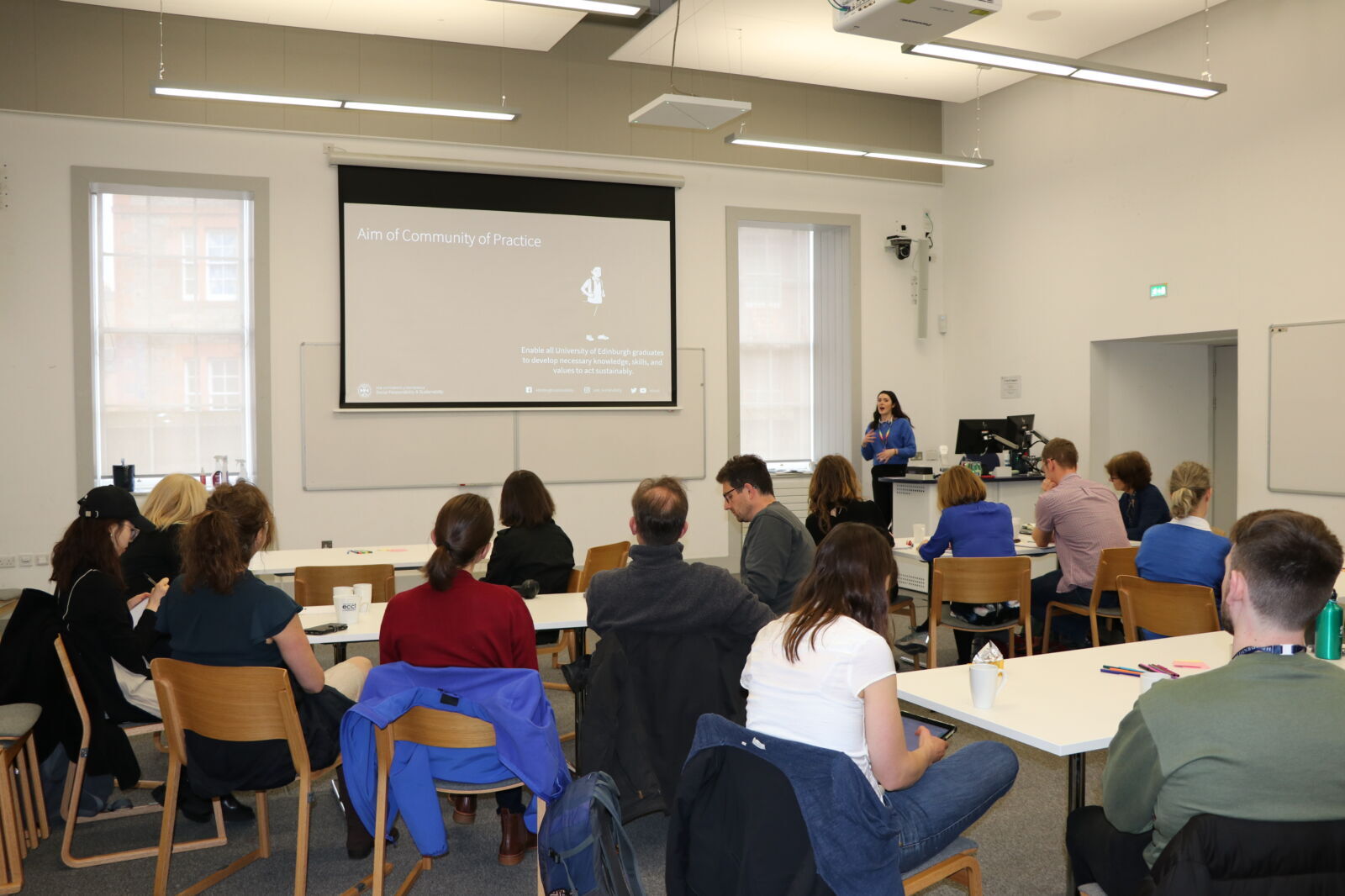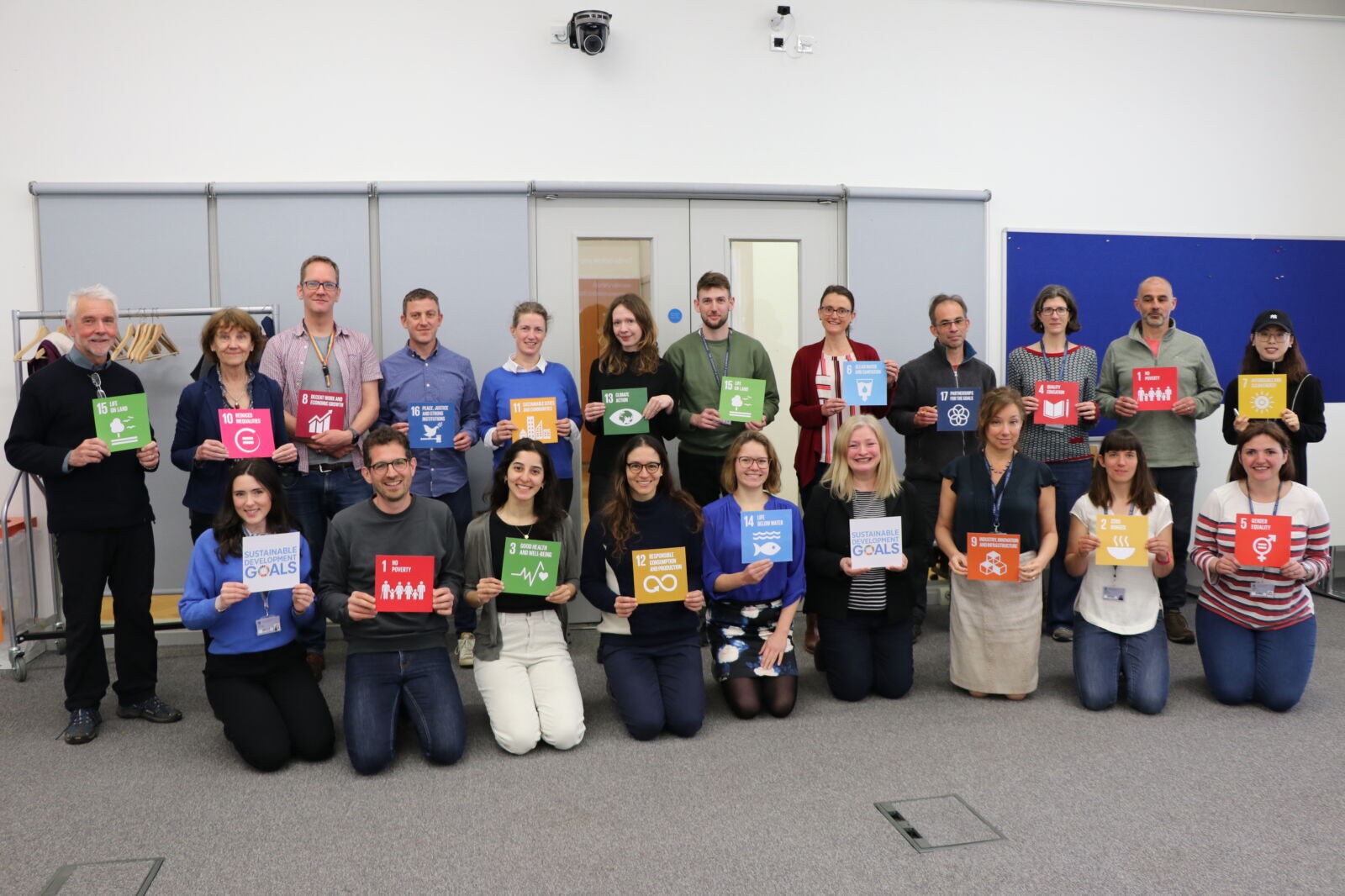Staff and Student community of practice for teaching sustainability at University of Edinburgh
Lucy is Climate and Sustainability Co-Ordinator, Department for Social Responsibility and Sustainability, at the University of Edinburgh, and shares her insights into their Community of Practice.
Lucy Patterson
Over 130 staff and students at The University of Edinburgh are part of a Teaching Climate and Sustainability community of practice which has been running since March 2023. The group was set up by the Department for Social Responsibility and Sustainability (SRS) and Learning for Sustainability Scotland (LFSS) with the aim to support educators to embed climate and sustainability in curriculum and pedagogy.
Ultimately achieving this university wide would impact students by enabling all University of Edinburgh graduates to develop necessary knowledge, skills, and values to act sustainably. Therefore, it was important both stakeholders were given a voice in the community.
What the group is
The community is facilitated through a combination of microsoft teams channel and quarterly hybrid events (pictured) that both aim to encourage knowledge sharing across members.
This emphasis on sharing personal experiences of attempting to embed sustainability in practice, no matter how successful or progressed, created a pressure for the organisers to restrict the group to just staff, specifically those delivering or supporting teaching. Concerns around reputational risk and therefore psychological safety when sharing honest, potentially negative experiences with students threatened the primary aim of the group to upskill educators.
However, creating a supportive and trusting environment centering both stakeholders on a common goal has meant both staff and students can communicate freely.

Why bringing staff and students together is necessary
Cultivating this culture has required additional effort from organizers but following the principles of equality diversity and inclusion that are integral to sustainability it was decided it would be hypocritical not to give all stakeholders a voice in the community.
“Nothing about us without us”- United Nations, 2004
Staff can benefit from students in the community from:
Driving ambition
Critical feedback
Sharing student priorities
Students can benefit from staff in the community by:
Optimism
Identifying learning opportunities
Building career experience.
How student-staff integration was facilitated
Promotion via staff and student channels. Gathering members through staff and student communication channels was the first step to ensure capacity for staff student engagement; The SRS departments LinkedIn pages, and ‘introduction to sustainability’ training expected of all staff and students were utilised to reach both audiences. Direct word of mouth at events like welcome week, guest lecture slots, and through cohort wide emails from program leads was used to raise student awareness. And promotion through existing staff networks, at carbon and biodiversity literacy training, college learning and teaching committees and at the University’s learning and teaching conference were used to raise staff awareness.
Ownership of terms of reference. To reflect the differing priorities of both stakeholder groups we held a launch event to create terms of reference for the group. Discussions were guided and recorded around the following areas: What members want from the group, what members want to contribute to the group, expectations of fellow members, and expectations of organizers. Both staff and student attended (pictured). It was important to the group that the same expectations applied to all members regardless of student or staff which reinforced the equal relationship we wanted staff and student members to have. These were compiled into a dynamic document that members are welcomed to comment and build on throughout the communities’ existence.
Workshops activities accessible to all staff and students. Staff and students regularly interact following a teacher and learner dynamic, however in this community their relationship was as peers. Quarterly forums were centered round workshops on a chosen pedagogy for sustainability which allowed all members to engage with the theme either through reflecting on experience delivering (staff) or receiving (students) learning. Breakout groups were organized to allow cross-sharing of experiences and collaborative generation of next steps.

Impact of community of practice on teaching and learning
25% of the community are currently students, many of whom hope to follow a career in academia and are using this group for professional development. How student membership of this group impacts the recruitment of sustainability minded early career practitioners into the University of Edinburgh is yet to be seen. However, their influence on current academics is evident just a year in.
An annual reflect and celebrate event was held in January 2024 saw several members share the ideas they have had to embed sustainability in their practice through small group conversations. Ideas ranged from small immediately implementable changes to complete course creation and all cited student demand as a driver for change.
While the community does not place an expectation on members to change their practice, this enthusiasm and independent initiative to change in response to its activity shows how the community is achieving its aim to embed sustainability in The University of Edinburgh curriculum.
Looking Forward
The community will continue for as long as there is demand for it but effort will need to be made by organizers to continue promotion in order to maintain a diverse and active membership. In the short term the ambition is for membership to represent staff from all schools and varying levels of career progression, and for students from a vast range of disciplines and levels of study.
With thanks to, Lucy Patterson, Climate and Sustainability Co-Ordinator, Department for Social Responsibility and Sustainability, University of Edinburgh